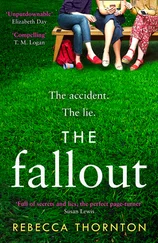The French team had spent a difficult few months. On the outbreak of war in September 1939, Joliot-Curie, a captain in the artillery reserves, had been immediately called up but then given special responsibilities for coordinating government scientific research. This provided cover for his studies of fission. Kowarski and von Halban had quickly been naturalized and then drafted, but, at Joliot-Curie’s request, arrangements were made for them to remain with him on special assignment. Joliot-Curie’s hope was to demonstrate a self-sustaining chain reaction in natural uranium using slow neutrons, to convince the government that this could provide a potential new source of energy and thereby to win funding to build a nuclear reactor, or “uranium boiler.” To do this, he needed not only sufficient quantities of natural uranium but also a suitable “moderator” with which to slow down the bombarding neutrons. Experiments had shown that ordinary water, as used by Enrico Fermi when he had it carried in buckets from the goldfish fountain in the gardens behind his institute in Rome, was not sufficiently effective for his purposes—too many neutrons were lost from the chain reaction. Joliot-Curie decided he must have the denser heavy water.
Heavy water, though, was scarce and expensive. The only supplier in Europe was the Norsk-Hydro-Electric Company in Norway, of which the German industrial giant IG Farben owned 25 percent. The company’s Vemork plant, near Rjukan, manufactured it as a by-product of synthetic ammonia. It was a painfully slow process. Tons of ordinary water were electrolyzed with cheap electricity to release the hydrogen required to manufacture the ammonia. As electrolysis tends to release ordinary hydrogen, this left behind a tiny residue of heavy water. Joliot-Curie briefed the French minister of armaments and Lieutenant Jacques Allier of French intelligence about heavy water’s special significance in fission research and pleaded that Norsk-Hydro’s entire stock be obtained quickly and brought to France. Allier’s interest in the substance had already been raised by reports that IG Farben was demanding without explanation that two tons of heavy water be shipped to Germany. The head of the Norwegian plant, Axel Aubert, a Norwegian of French extraction who was suspicious of its intentions, was stalling but could not fend off IG Farben much longer.
Consequently, in February 1940, Lieutenant Allier had left Paris secretly by train for Amsterdam, traveling under his mother’s maiden name, Freiss. He was carrying a letter from the French president and a credit note for 36 million French francs. [22] A substantial sum, then equivalent to £290,000 or $ 1.4 million.
His orders were to bring the entire stock of heavy water to Paris or, if that proved impossible, to render it unusable by contaminating it with cadmium, of which Joliot-Curie had given him a small vial. Despite French precautions, Allier’s departure had not gone unnoticed by German agents. French intelligence intercepted a telegram reading, “At any price intercept a suspect Frenchman travelling under the name of Freiss.” Nevertheless, by 2 March Allier had reached neutral Sweden, where he made contact with French intelligence agents before slipping into Norway. Upon arrival in Oslo, he had a clandestine meeting with Axel Aubert, who agreed without demur to loan France, free of charge, Norsk-Hydro’s entire stock of heavy water—185 kilos—for the duration of the war.
At the Vemork plant the heavy water was sealed into twenty-six seven-liter cans, specially made by an Oslo craftsman working secretly at home. On 12 March, in a carefully planned exercise, the cans were flown out from under the noses of German agents via Oslo airport. Two airliners on scheduled flights, one to Perth in Scotland and one to Amsterdam, were waiting on the runway. Allier acted as if he intended to board the plane for Holland, paying no attention as the other plane’s propellers began to revolve. Suddenly, a large taxi rushed up to the airfield. Inside were both a French agent, enacting a charade about being late for the Amsterdam flight, and the carefully concealed cans of heavy water. The agitated man’s taxi was allowed to drive onto the airfield and halted between the two planes, out of sight of the terminal building. The heavy cans were then swiftly manhandled onto the Perth plane, aboard which Allier had meanwhile slipped. It took off almost at once and reached Scotland safely. The subterfuge had been entirely necessary; German fighters forced down the Amsterdam plane, which left soon after, at Hamburg, where it was thoroughly searched but nothing, of course, was found. By mid-March the French had moved their cans of heavy water to Paris, where they were stored in the vaults of Joliot-Curie’s College de France.
The French mission had been timely. On 9 April 1940, a month later, German troops invaded Norway and ended the phony war. However, Paris was not for long a safe home for the heavy water either. On 1 o May the Germans attacked neutral Belgium and Holland. The latter quickly capitulated after heavy bombing raids on Rotterdam that killed 814 civilians. The German blitzkrieg swiftly overran Belgium too. By the end of May, with the evacuation of British troops from Dunkirk under way, and with German forces advancing on Paris, where French government ministries were burning their papers, Joliot-Curie found a temporary hiding place for the drums of heavy water in the death cell of the central prison at Riom, near Clermont-Ferrand. A few days later, von Halban and Kowarski loaded a truck with scientific equipment and fled there from Paris with their families. The Joliot-Curies joined them soon after.
On 16 June, two days after the fall of Paris to the Germans, Allier arrived with orders for the French scientists to withdraw to Bordeaux for evacuation to England aboard the Broompark. Early the next day, 17 June—the same day Marshal Petain broadcast to the French people that he had assumed control of their government and had applied to the Germans for an armistice—von Halban and Kowarski, a refugee once more, loaded the heavy water onto a truck and, with their wives and children, joined the frightened stream of people heading for the coast. Joliot-Curie followed after leaving Irene, who was suffering from a combination of respiratory problems and anemia, at a sanatorium.
The port was in chaos, under aerial attack, and crammed with more than five hundred thousand refugees, troops, and abandoned military and civilian vehicles. Von Halban and Kowarski managed to find the Broompark and embarked with the heavy water. Despite the earl of Suffolk’s assurances that his wife and children would be brought safely to England, Joliot-Curie decided to remain in France—a decision his mother-in-law, Marie Curie, would have wholeheartedly endorsed. As Irene later told a friend, “My mother would never have abandoned her laboratory.” However, it meant that Joliot-Curie would have no further contact with von Halban and Kowarski until the war ended.
Joliot-Curie never revealed his motivation for staying. Some friends thought that Irene, with her powerful personality that dominated their marriage, was a major factor. Bertrand Goldschmidt, who worked with him again after the war, believed that worries about his poor English and the status and facilities that the British would accord him may have swayed a difficult decision. Joliot-Curie’s daughter Helene later suggested that he stayed to help keep French science alive during what he thought would be a long occupation. If such was his main motivation, it had some resemblance to Heisenberg’s reasons for remaining in Germany. His decision would certainly confront him with similar moral dilemmas: How far, for instance, should he collaborate with the Nazis to preserve his beloved research facilities for his nation’s science?
Читать дальше












